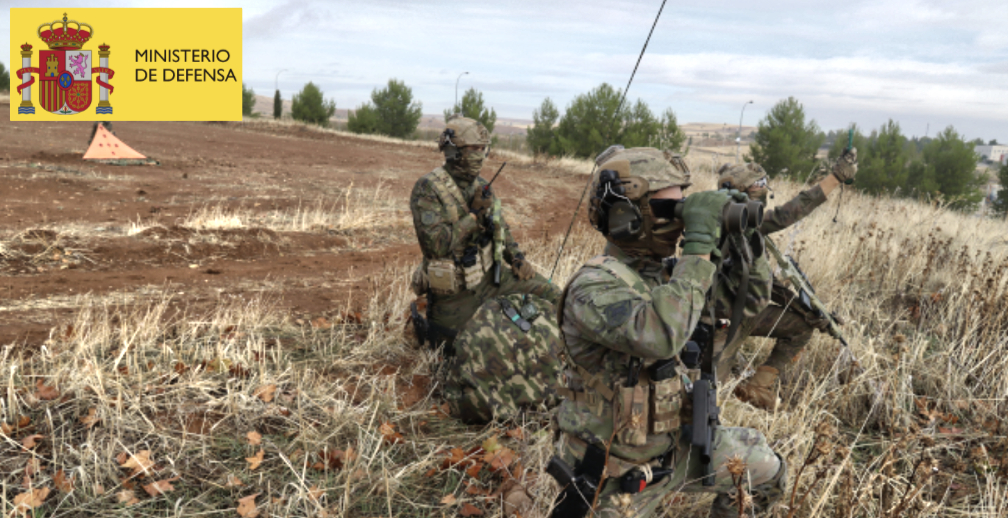
The Spanish Ministry of Defence has awarded Indra a project to modernize and upgrade the nation’s command, surveillance, identification and control (ARS) centers that are essential for combating potential threats to the country’s airspace.

Indra will equip the ARS centers in Torrejón de Ardoz in Madrid (GRUCEMAC), Zaragoza (GRUNOMAC) and Gando in Gran Canaria (GRUALERCON) and the Command and Control School (EMACOT) with the company’s next-generation AirDef air command and control system, which will contribute to the mission for the permanent surveillance and control of airspace national sovereignty led by the Spanish Air and Space Force.

With this project, the Ministry of Defence will rely on Indra’s proprietary development solutions, as it did in the late 1990s with the IARS system that is currently in service at the above named centers. This system, together with the Lanza 3D radars in the Air Surveillance Squadrons (EVAs), forms the backbone of airspace surveillance and control in Spain.
Thanks to the modernization of the ARS centers with the new AirDef system, which incorporates anti-missile defence for the first time, and the new and more advanced Lanza 3D radars that Indra will continue to deploy, Spain’s status as a country with one of the most comprehensive and integrated air and anti-missile defence systems in the world and a global leader in this sphere will be reinforced.
AirDef, which is already operational in several countries around the world, has been designed to meet NATO’s demanding air command and control requirements to facilitate its contribution to the Alliance’s Integrated Air and Missile Defence System (NATINAMDS), ensuring its essential and ongoing mission during times of peace, crises and conflicts to safeguard and protect the Alliance’s territory, populations and forces against any air or ballistic missile threat or attack.

Meeting these requirements and positioning itself with one of the most advanced command and control systems in operation in NATO countries opens up the possibility of other nations adopting Indra’s technology in keeping with the decision of the Spanish Ministry of Defence.
Indra’s system incorporates the latest software and hardware technologies and architectures, which enhance sensor fusion, recognized air picture generation (RAP) and real-time air and anti-missile battle management, providing operators with multiple smart decision-making aids through advanced, geo-positioned and configurable graphical interfaces. The above will be possible thanks to the native integration of the most advanced NATO tactical data links (Link 16, JREAP, Link 22 and VMF) between the operating entities, guaranteeing their interoperability with those that have been in service in recent decades (Link 1, Link 11B and Link 11A), which are also integrated into Indra’s solution.
The implementation of the AirDef system at the Air Operations Center (AOC) of the Operational Aerospace Command (MOA) in Torrejón de Ardoz will also provide BMD (Ballistic Missile Defence) capabilities to manage the anti-missile defence, thanks to its integration into Indra’s Lanza 3D LRR and LTR-25 sensors (similarly equipped with such capabilities) and the tactical data links with the anti-missile weapon systems. The AirDef system will also provide the Air Operations Center with a NATO-interoperable tool to generate the ATOs (Air Tasking Orders) and ACOs (Airspace Control Orders) required for the planning of air operations.
The project also envisions the implementation of a voice over IP communication system and remote control of the state-of-the-art ground/air radios known as GAREX-300M at the ARS centers. This system guarantees maximum resilience and availability and introduces new architectures to permit security clearance for the separate management of classified and non-classified (red/black) information between operators and between aircraft and centers.
This new system is currently being deployed at NATO’s Combined Air Operations Center (CAOC) in Uedem (Germany) with the aim of facilitating the coordination of the Alliance’s air policing missions throughout European airspace north of the Alps, thus demonstrating its ability to facilitate air operations of the utmost complexity.

Combined Air Operations Centre Torrejón (right)
The project is complemented by the provision of a software maintenance center, key to the concept of autonomous logistic support for the air command and control system units. The above constitutes a replica of the software and hardware architectures and it will facilitate security clearance maintenance, configuration control, the generation of new software packages, the execution of the different tests and the updating of the IETP manuals (Interactive Electronic Technical Publications).
In addition to further strengthening Spain’s air defenses and placing it at the forefront of the field, this project will reinforce Indra’s position as one of the most advanced defense-geared technological engineering companies in Europe and the world and a leader of the sector’s digitalization.
Its state-of-the-art solutions for Land, Sea, Air, Space and Cyberspace range from operations with end-to-end defence systems and systems on board the most advanced platforms to training with cutting-edge simulation systems. As an expert in radar, electronic defence, command and control and communication technologies, Indra incorporates artificial intelligence, big data, virtual reality and combat clouds in its cutting-edge critical systems. Indra is the national industrial coordinator in Spain of the FCAS, the largest and most advanced defence program in Europe, and the Spanish company that coordinates the largest number of projects in the European defence sector. It also participates in a large number of European and international projects, such as Eurofighter and the A400M. The company exports its radars to five continents and is the principal supplier to NATO.
“We’re proud to be able to use our technology to keep on helping to strengthen the security of our country and placing it at the cutting edge in the world. Indra’s collaboration with the Ministry of Defence and the Spanish Air and Space Force over several decades is a story of shared successes that have gone beyond our borders, as we’re sure will happen with AirDef, a system with 100% Spanish technology and excellent export potential, as we’ve already proven,” said Indra CEO, Ignacio Mataix.
